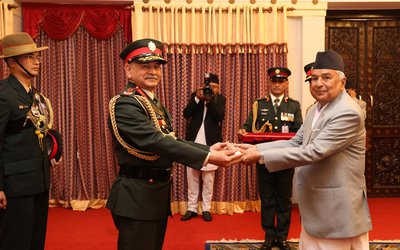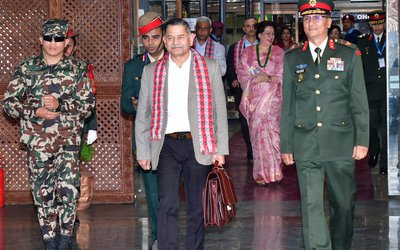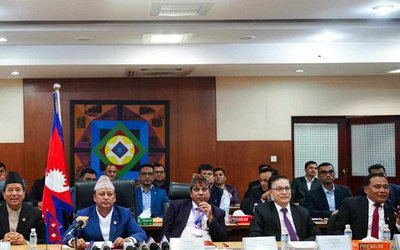
As science innovates, it complicates the society and system. Although Nepal does not have any laws, regulations and policies to deal with the issue of surrogacy, the surrogate parents find Nepal as a viable destination.
Following the order of the Supreme Court, the issue has surfaced in the public. Nepal’s existing laws do not recognize the children born through surrogacy. Had not the government taken the right decision, 400 surrogate children would be stateless.
After long efforts, the surrogate kids are given to join their real mothers and leave Nepal. With the Supreme Court’s order two months ago, the fate of surrogate kids has remained uncertain.
However, twenty five surrogate fathers won the battle to leave for Israel. The fate of such children has remained uncertain after Nepal's Supreme Court declared surrogacy illegal two months ago, and four hospitals in Kathmandu stopped admitting surrogate mothers.
Frustrated and angered by the decision of Supreme Court, fathers of surrogate babies lobbied with the government.
The government subsequently denied permission to the surrogate fathers from about a dozen countries including Israel, US, UK, Brazil and Australia, to take the children with them to their countries. Interestingly, all the surrogate mothers were from India, mostly from Bihar.
The absence of any policy on surrogacy and the SC’s verdict declaring it illegal sealed the fate of the children with the foreign ministry refusing the children travel documents to accompany their fathers.
Respective embassies lobbied with the foreign ministry to let the children go to their “father’s land”, but it was the shortage of essential commodities and medicines following the alleged blockade of the southern checkpoints by India affecting health of some of the children that compelled the government to expedite its decision.
“In the first lot, 25 children from Israel have been issued travel documents, and all others will also be allowed to leave the country with their fathers,” a government official said.
The government also took a decision that all surrogate children conceived before the Supreme Court verdict will be provided travel documents to go to the countries of their fathers.
Four hospitals in Kathmandu had “surrogacy delivery facilities”, but it was the doctors and commission agents from India that used to find surrogate mothers. Each mother, sources said, was being paid minimum 400,000 Nepali Rupees.
- PM Oli's Visit To China: Geopolitical Implications
- Nov 19, 2024
- NEA: Kul Man Ghising, A Cool Man
- Oct 28, 2024
- DASHAIN FESTIVAL : Festival of Unity
- Oct 04, 2024
- NEPAL-CANADA Bilateral Meeting
- Oct 04, 2024
- MIDDLE BHOTEKOSHI: Final Stage
- Sep 23, 2024
















